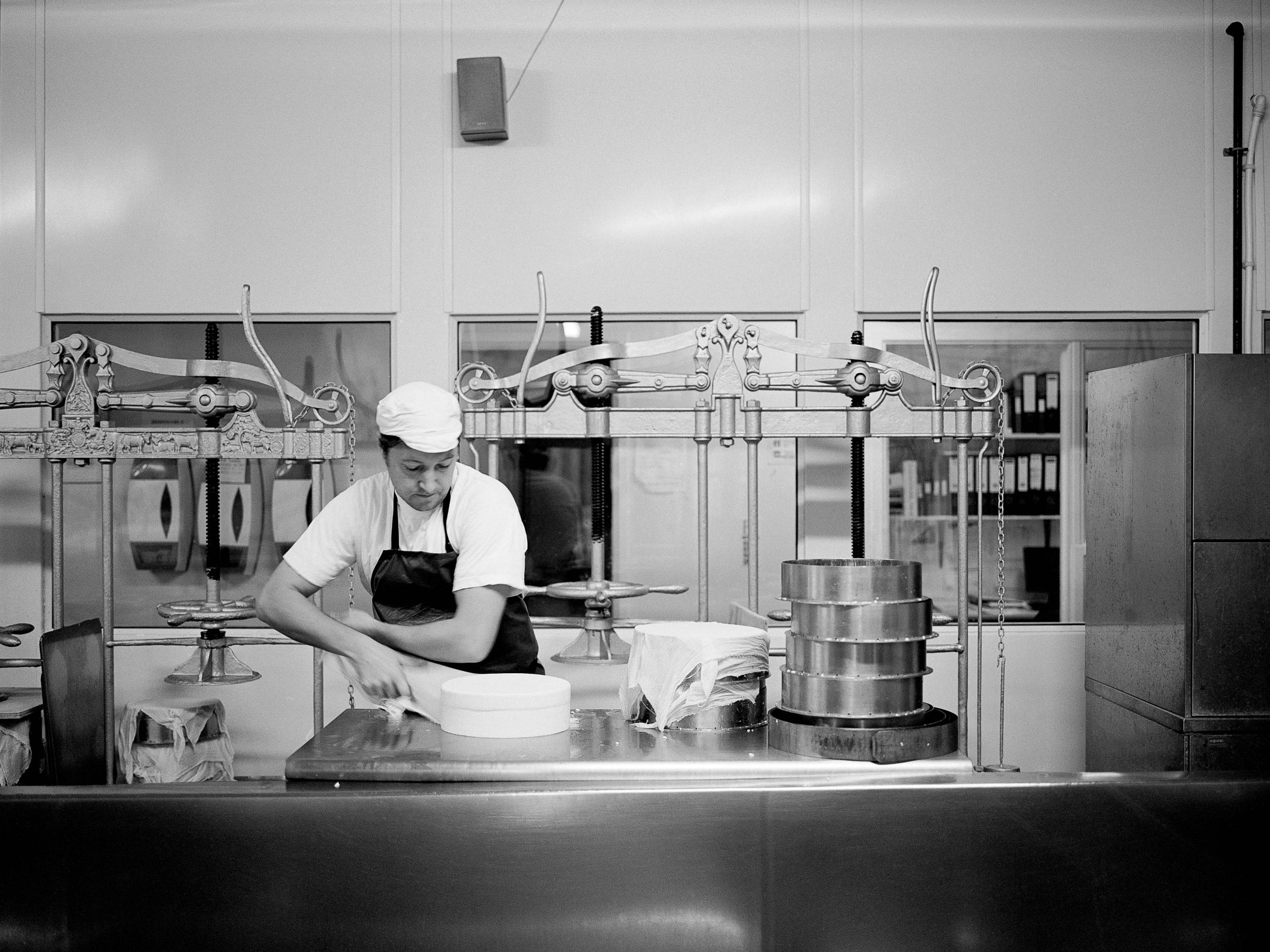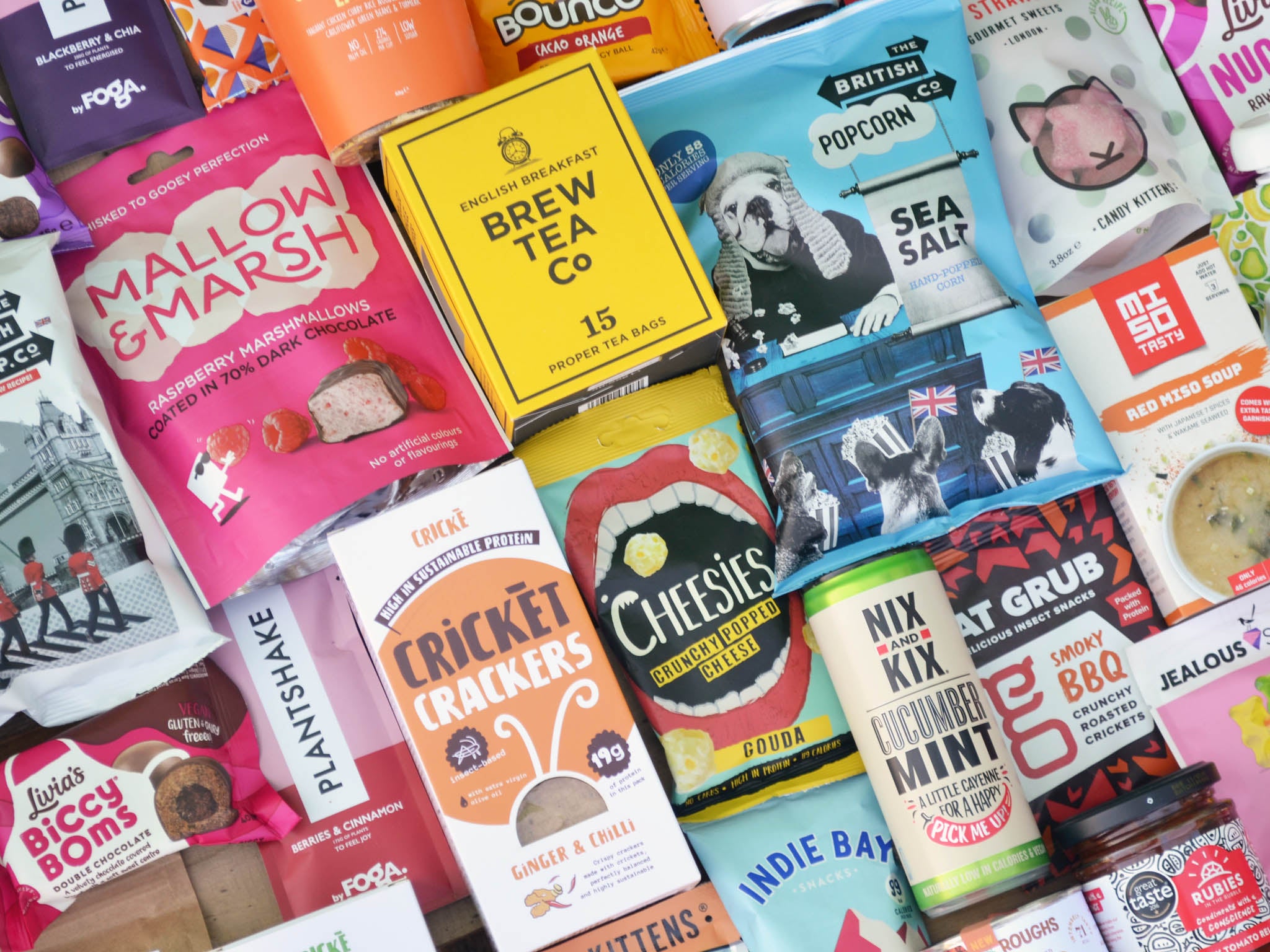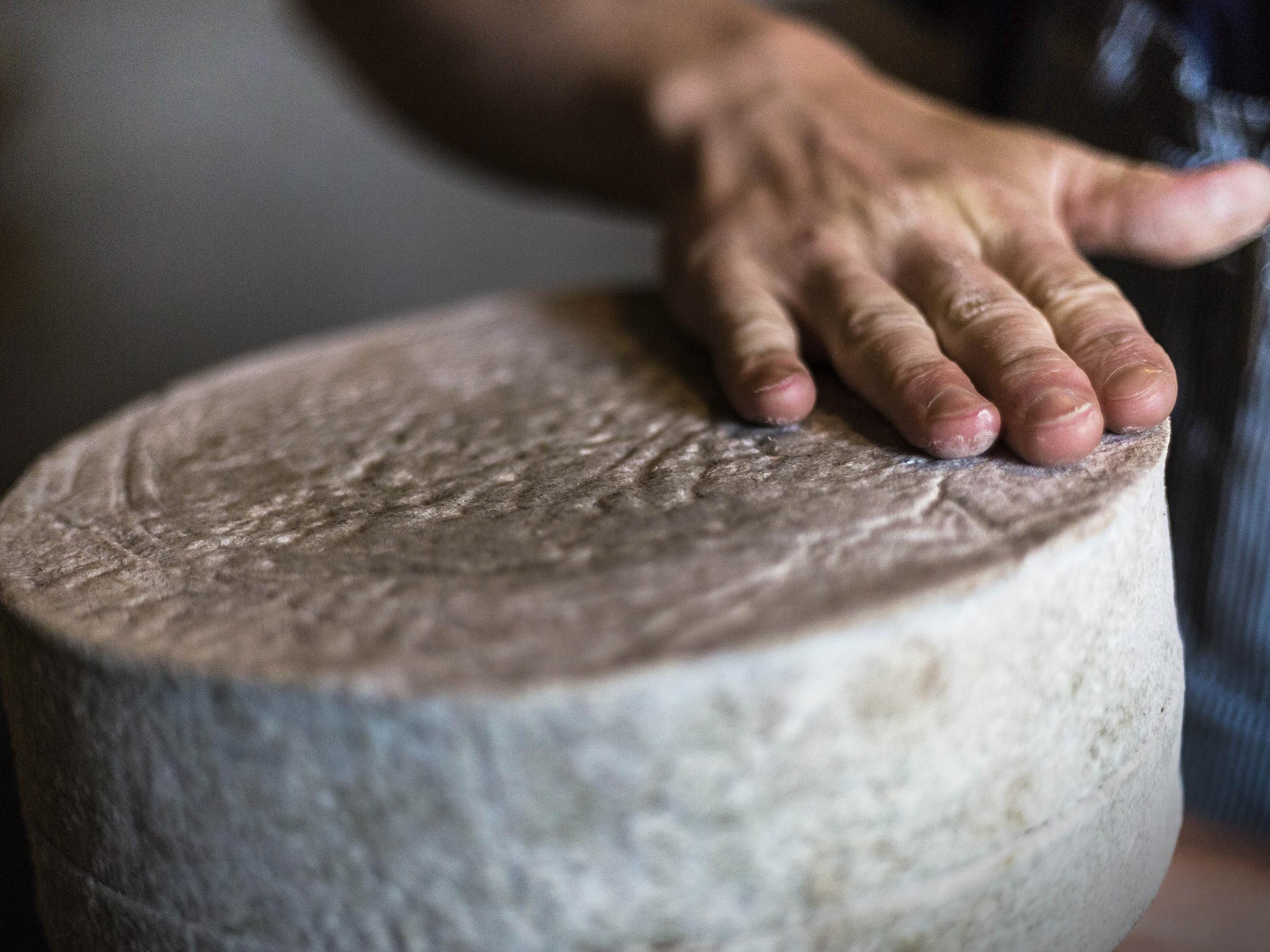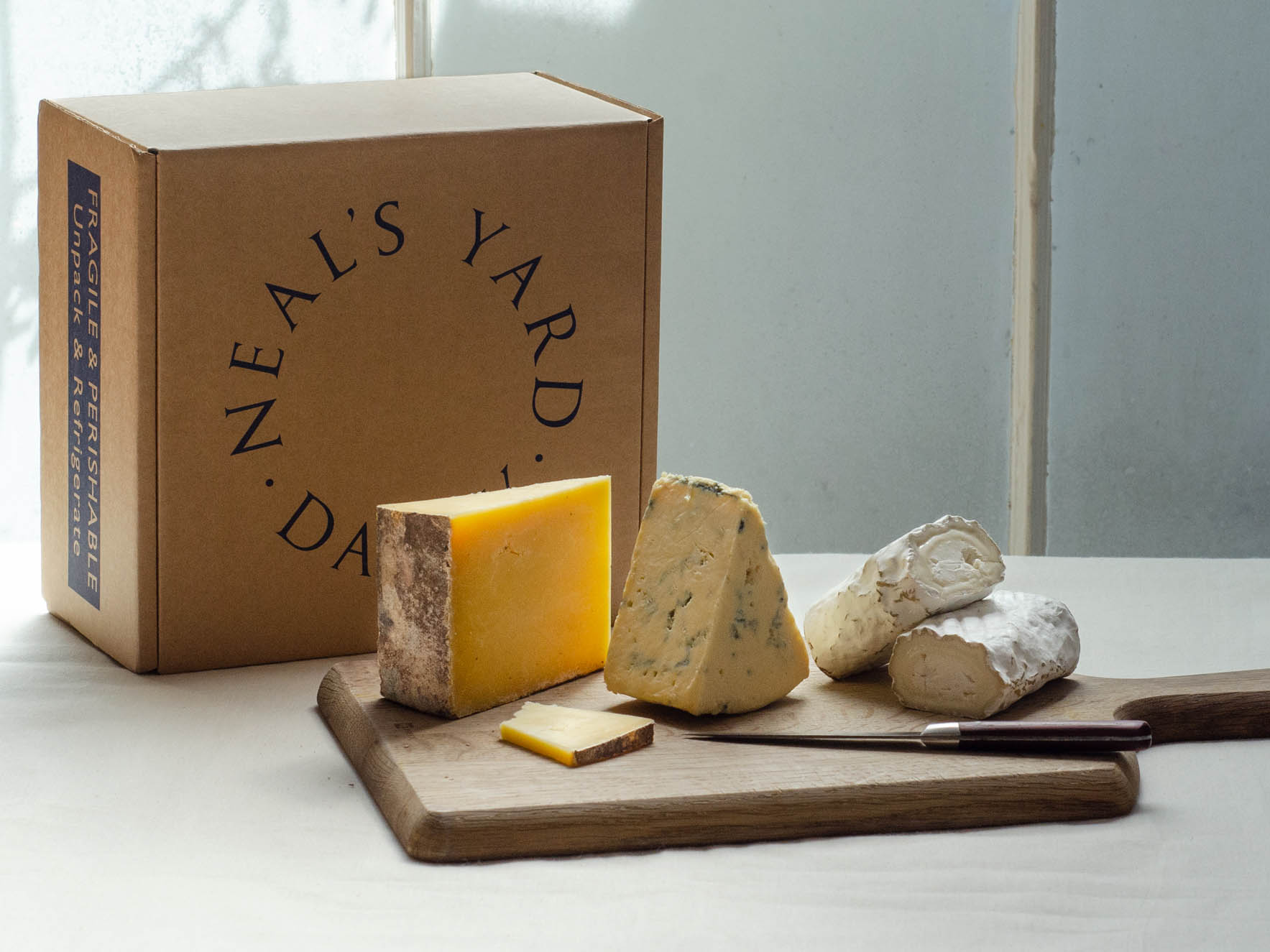‘Prior to lockdown, we’d had seven transactions in as many years’: How online sales changed small food producers
Clare Finney speaks to the independent food producers – from butchers to cheesemakers – who turned their businesses around overnight to cope with the huge demand for online shopping during the pandemic

Sales increases of 1,000 per cent; record customer engagement; new audiences. For small independent food businesses during lockdown, online shopping has been nothing short of a godsend. Food pages of the newspapers have been filled almost daily with stories of butchers, bakers and cheesemakers whose bacon has been saved by ecommerce; for cheesemakers in particular, whose pre-lockdown market largely consisted of restaurants and events caterers, it’s been the difference between scraping a living and wasting mountains of cheese.
Yet what on paper – well, screen – reads like a perfect solution has, in reality, placed a sizeable burden on business owners who weren’t prepared – who indeed never set out – to be focused almost solely on online retail; who overnight found themselves grappling with address labels, couriers, packaging options and mail-order spreadsheets.
It was “a nightmare”, says Magali Russie of Spice Mountain, a spice company with shops in Borough Market and Stratford. Since 22 March, she’s been working 15-hour days. Overnight, sales through her website went from 30 a day to 250 – “and I had to furlough 18 staff to keep the business afloat, so it was just my husband and me”. Normally when you expand your business in a new direction, you are prepared, she continues. “You build slowly. You have a plan,” she says.
“In this case, the only way we could meet the orders was to not sleep – because you can’t have too long a turnaround time. If you have a turnaround time of 10 days people will go elsewhere.” From spending her days split between the warehouse and her two once-bustling shops, Russie has gone to being confined almost solely to the former, packing and posting boxes.
“Between 3pm and 6pm I am just printing labels. I spend hours on the phone to couriers and customers, checking where orders are.” Though incredibly grateful for each and every order placed – “it has been a godsend, I don’t know what we’d do without it” – she misses the simplicity of a counter and a till.
She’s not the only one. Though small business owners I speak to for this piece are all at pains to stress their gratitude (the last thing they need is to lose the custom), the experience of processing a customer’s online order is far removed from that of selling wholesale or serving someone in a shop.
For one thing, it’s more time-consuming. “You have to cut the cheese, wrap it, create the box, insulate the box, make it look pretty, enter the order number into the shop accountancy program, print the label, stick it on, enter it into UPS. The margin seems to be a lot, but it’s not when you factor in the cost of packing and the labour involved,” says Tom Calver, a farmer and cheesemaker at Westcombe Dairy. Prior to lockdown, they sold their farmhouse cheddar to restaurants and to Neal’s Yard Dairy in London. “I did have dreams of ecommerce when I built our website in 2013,” he laughs, “but prior to lockdown we’d done about seven transactions in seven years.”

All this changed, of course, when the restaurant trade stopped overnight. Calver cannot thank customers – old and new, local and further afield – enough for the support they’ve shown, both directly through their (now much swisher) website and through Neal’s Yard Dairy – but, he says, it is “a different ball game”. “It took Gary, our packing manager, two to three hours to label 27 cheeses and put them on a palette for wholesale. That’s 9,000 kilos. Online, you’ve got all that labour for just 250g cheese.”
“For those who don’t do it at scale, it can be a false economy,” Theodora Alexander, the co-founder of Young Foodies, a consultancy and community of challenger (innovating) food and drink brands, cautions. She points out that “for a lot of small businesses, the only way they can make it add up is if they are the ones packing boxes and don’t factor in their time, as well as the fact they could be spending that time doing other things”. The idea of viewing ecommerce as some kind of panacea for any food business struggling as a result of Covid-19 is “just not realistic”. “Some people have built their whole business around this – they live and breathe it. You can’t just turn it on.”
When coronavirus hit, Alexander and her co-founder Chris Green decided one way to help the brands in their Young Foodie community was to create an online shop for them. The result, Mighty Small, is an online supermarket consisting entirely of small independent food brands who might have otherwise struggled to get the attention of customers shopping within the time and space constraints of a socially distanced supermarket; customers armed with lists detailing exactly what they want.

“The problem with online is it’s so fragmented,” Alexander explains. “But if we are packing the box anyway, we can do it for 50, 60, 100 brands and send to a house, instead of having one brand packing their box and charging separate postage.” They have the advantage of scale and reach, and Mighty Small has proved extraordinarily successful. Yet for those businesses that have engaged in their own ecommerce instead or as well as going through other platforms, there has been some benefit in having a relationship with their customers that go beyond remunerative. “You have a direct relationship with a shopper who might be new or who might otherwise have been lost, and that is amazing,” Alexander continues. “From a marketing perspective, you have the potential to build a tribe and community.”
This is something Calver at Westcombe Dairy has experienced firsthand. “Customers like that they are buying direct from the producer. It’s forced us to engage more.” You can see the difference in the Instagram posts, which jumped from about one a month pre-lockdown to almost weekly updates since. Ecommerce has given the firm direct access to customers far beyond the doorstep of their farm shop in Somerset – “and that opportunity [to get customers to their website to browse] gives the customer a far more immersive experience”, Alexander points out.
Yet the real game-changer for Westcombe Dairy was not so much their own online sales (substantial though they have been) as those of Neal’s Yard Dairy, who enlisted the help of Jamie Oliver to shift thousands of their emergency, Save British Cheese boxes; and who – with Oliver – have just announced a British cheese subscription box: a monthly selection of cheeses from 18 producers, the proceeds of which will go directly towards keeping this delicate ecosystem of farms and cheesemakers alive.
“The Save British Cheese box saved our bacon,” says Calver. The hope for the British cheese selection box is that it helps cheesemakers like Calver to survive until December and the seasonal rush on cheese that Christmas brings.
Of course, it was being online that made these initiatives possible, says Jason Hindes, the director of Neal’s Yard Dairy, “but the most amazing thing is that through them we’ve reached a demographic we haven’t engaged with historically”.

The combination of being online and being supported by Oliver has broken down the barriers to entry, so that they are now speaking to people who have never had cheese like this before – and they love it. “That is so encouraging,” Hindes enthuses.
People who might have been intimated by a Neal’s Yard Dairy shop, with its pungent smell and dazzling array of cheeses, felt they could order a box from a website, with recommendations from Oliver. In all honestly, the response has shown “not just that the market is different to what we’d imagined – but that our approach needs to be different too”, Hindes adds.
In short, their online findings can inform their approach to selling in the shops – and vice versa. Of the companies I spoke with, those that were faring best were those who had (more by luck than design) found a balance between the virtual and physical.
One bakery, Haddie and Trilby in Leamington Spa, will soon succeed in splitting their spontaneous sales and their online sales entirely: customers collect the bread and pastries they’ve pre-ordered online from one location, customers in the market for a spontaneous purchase will (in a few weeks) head to another. It’s not how founder and baker George Casey envisaged the business (which pre-coronavirus was a traditional bakery with a cafe) but he wouldn’t turn back the clock.

“That magic has gone from that visual experience, which the customer would get when they come in, of beautiful food,” he says. “It’s just a mountain of brown bags, which isn’t so enticing.” Yet what he’s gained in terms of repeat custom and reduced waste far outweighs that loss, and if he gets a second site for more spontaneous sales, he’ll have the best of both worlds.
London-based butchers The Ginger Pig has been similarly struck by just how well online has helped them “balance the carcass” – that is, ensuring the whole animal is sold with minimal wastage. By curating the website so that cuts they have an excess of are promoted, the firm can nudge the customer towards the meat they need to sell.
“There is more of a direct link in terms of educating the customer. In the shop it’s possible, but it’s less straightforward than with a newsletter, social media and so on,” says Amelia Woolley, the brand and marketing manager of The Ginger Pig. The ability to plan, execute direct sales and minimise waste are of particular benefit to food businesses – especially small ones who don’t have economies of scale and can’t afford to offer big discounts.
The unprecedented surge in online food shopping was, and continues to be, a mixed blessing for small businesses. But there isn’t a business owner among them who doesn’t feel that, when it came to the coronavirus pandemic and lockdown, there but for the grace of ecommerce went they.
Join our commenting forum
Join thought-provoking conversations, follow other Independent readers and see their replies
Comments
Bookmark popover
Removed from bookmarks